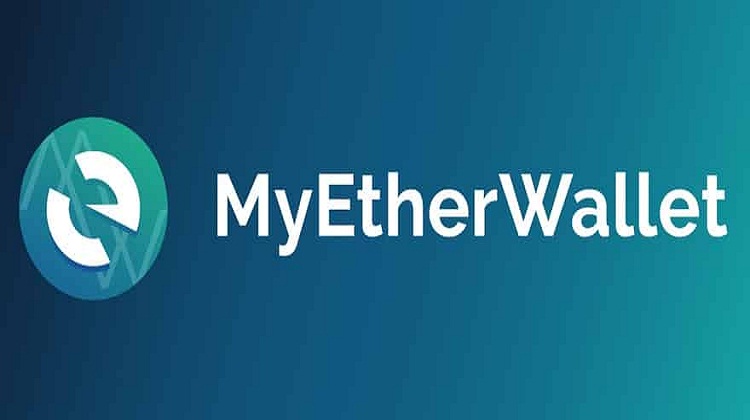
If you own cryptocurrency, then you know how important it is to keep your private key safe. One of the most popular ways to store and manage a cryptocurrency portfolio is through the MyEtherWallet (MEW) platform. In this article, we’ll discuss why it’s important to maximize protection for your login ethereum private key (ログインイーサリアム秘密鍵)and offer some tips for taking proactive steps to protect your digital currency wallet.
Before we get into protecting your private key, let’s first talk about what a private key actually is. A private key is a string of alphanumeric characters that is mathematically linked to the public address associated with your MEW wallet. It serves as a password and allows access to digital assets stored in your wallet.
Why Is Protecting Your Private Key Important?
Protecting your MEW wallet private keys is essential because if someone were able to access them, they could potentially take control of any cryptocurrency stored in that wallet – and there would be no way of getting it back. This means that any money or tokens stored on the platform would be gone forever, so safeguarding your private keys should always be top-of-mind when managing digital assets on MEW.
Tips for Maximizing Protection for Your Private Key
Now that we’ve established why protecting your private keys is critical, let’s look at some ways to do just that. Here are some tips for maximizing the security of your MEW wallet:
- Use strong passwords – Make sure you choose long, complex passwords that are hard for an attacker to guess or crack using brute force techniques. You can also use two-factor authentication (2FA) for an extra layer of security when logging into MEW wallets.
- Use cold storage – Cold storage refers to securely storing cryptocurrency offline away from potential threats such as hackers or malware attacks on connected devices (e.g., computers or smartphones). You can store cryptocurrencies offline by using hardware wallets such as Ledger or Trezor devices which provide additional protection against cyber criminals trying to steal users’ funds via phishing scams or other malicious activities online.
- Be aware of phishing scams – Phishing scams are one of the most common ways attackers try to steal cryptocurrency wallets and their contents. They involve sending emails with malicious links that appear legitimate but actually lead users directly into handing over their login credentials or private keys via fake websites designed specifically for this purpose. To avoid falling victim to phishing scams, only visit trusted websites and never share sensitive information such as usernames, passwords, or recovery phrases with anyone online – even if they claim they need it in order resolve an issue with their account balance or profile settings!
- Keep backups – Always make sure you have multiple backups of all sensitive data related to your cryptocurrency portfolios; including backup copies of recovery phrases and master seed words used when creating a new MEW wallet address/account along with regular backups made every few months or so (depending on how often you use the platform). This will ensure that you have a secure backup if anything happens accidentally like device loss/theft/damage etc., which could otherwise result in total loss of funds stored within those accounts without any way for recovering them again!
As a cryptocurrency user, security should always be at the top of your list of priorities. One of the most important aspects of safeguarding your digital assets is protecting your private key. Private keys are what grant you access to and control over your funds, so it’s essential that they stay secure. That’s why it’s important to learn how to maximize protection for your MyEtherWallet private key.
What is a Private Key?
First, let’s take a quick look at what a private key is and why it’s important. A private key is an alphanumeric string of characters associated with a public address. You can think of a public address as an email address – anyone can use it to send funds to you, but only you have access to the funds associated with that address. That access comes from having the corresponding private key, which functions like a password that unlocks your wallet and allows you to make transactions with your crypto assets. It’s absolutely essential that you keep this information secure at all times!
Backup Your Private Key
If something were ever to happen to your computer or mobile device where you store your private key (e.g., hardware failure or accidental deletion), all may not be lost if you have backed up your key beforehand! Backing up your private key means saving multiple copies in different places, such as on an external hard drive or USB flash drive, or even writing it down on paper and storing it in a safe place like a bank vault or safety deposit box. This way, if anything ever happens that makes accessing the original copy impossible, you still have other copies saved elsewhere that can serve as backups.
Use MyEtherWallet Offline
MyEtherWallet (MEW) offers two versions of its software – online and offline versions – giving users greater flexibility in terms of security for their MEW wallets. The online version requires users to be connected to the internet during transactions; however, this opens up opportunities for hackers to gain access to sensitive data through malicious third-party actors who could intercept traffic between MEW servers and user devices via man-in-the-middle attacks. The offline version eliminates this risk by allowing users to create wallets entirely within their own browser while offline; no connection needs to be made between MEW servers and user devices in order for transactions to occur successfully.
Conclusion:
Protecting your MyEtherWallet (MEW) private key is essential since it serves as a password and allows access to digital assets stored in your wallet — so if someone were able access them, they could potentially take control over any cryptocurrency stored there with no way of getting it back! Fortunately, there are several steps you can take right now in order maximize protection around this valuable asset; from using strong passwords & two-factor authentication (2FA), utilizing cold storage solutions like hardware wallets; being aware of phishing scams & keeping regular backups – all these measures go towards ensuring maximum security around not only the contents but also future investments into any new crypto projects! Ultimately though; safety must always come first when dealing with digital assets – so take care & stay vigilant out there!
Maximizing protection for your MyEtherWallet private key is not only important – it’s essential! Fortunately, there are several steps you can take towards ensuring maximum security for both online and offline versions of MEW wallets: backing up multiple copies of your private key in different locations; using the offline version whenever possible; and keeping any devices containing sensitive data protected with strong passwords and other authentication methods such as biometrics or two-factor authentication (2FA). By taking these precautions seriously, users can rest easy knowing their digital assets are as secure as possible!




